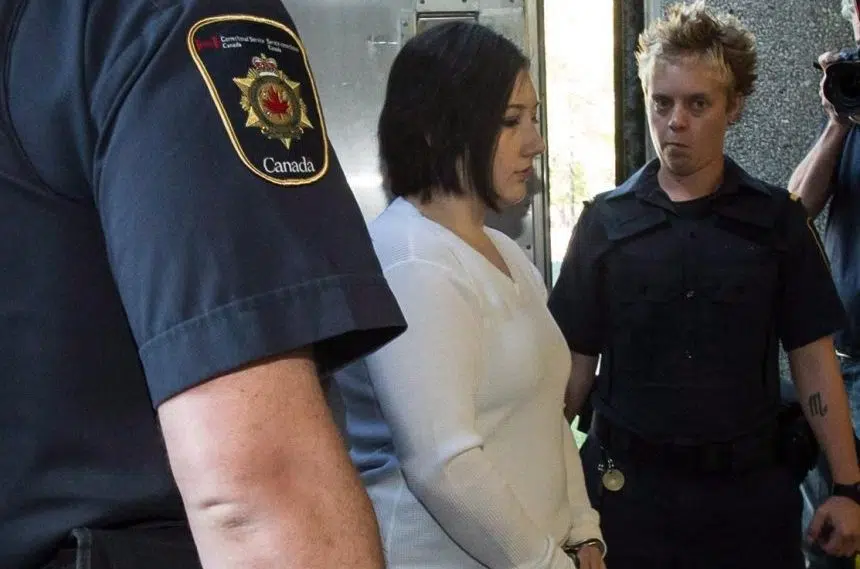A convicted child killer who became the subject of national outrage when it was learned she’d been transferred to an Indigenous healing lodge is back in prison, the father of her young victim said Thursday.
Rodney Stafford issued a brief, celebratory Facebook post announcing that Terri-Lynne McClintic was no longer at the Saskatchewan lodge, but offered no other details.
“It’s official!!! Terri-Lynne is back behind bars,” Stafford wrote in the post.
McClintic pleaded guilty to the 2009 abduction, rape and murder of Tori Stafford, an eight-year-old girl from Woodstock, Ont.
McClintic’s testimony against Michael Rafferty, her boyfriend at the time of the slaying, helped convict him in Tori’s death. Both McClintic and Rafferty were sentenced to life in prison with no chance of parole for 25 years.
The federal government came under intense fire when it surfaced that McClintic had been transferred from a traditional prison to the Okimaw Ohci Healing Lodge in Saskatchewan, which is managed by the Correctional Service of Canada and is listed as a medium-security institution for women.
Rodney Stafford had expressed outrage at the transfer and called for it to be reversed.
On Wednesday, Public Safety Minister Ralph Goodale announced changes that would make it more difficult for prisoners serving long sentences to be moved to healing lodges.
Under the new rules, prisoners won’t be eligible for transfers to healing lodges without secured perimeters until they’re into the “preparation for release” phases of their sentences.
The Correctional Service of Canada will also have to consider inmates’ behaviour and how close they are to being eligible for unescorted temporary absences from prison before transferring them.
In addition, the deputy commissioner for women will be involved in decisions to ensure national standards are applied consistently and relevant factors are considered.
Goodale said the changes will apply to past and future cases.
He said healing lodges still have a role to play in the correctional system but acknowledged a need for more public education in how prisoner decisions get made.
“These are decisions that are not taken lightly or capriciously,” he said. “They are based on evidence and sound principles, and there needs to be a higher level of understanding of that.”
In addition, there must be more meaningful and useful communication with victims given the anguish they have suffered, he said.
“They need to know that their perspective is being properly respected.”
Michelle McQuigge , The Canadian Press







